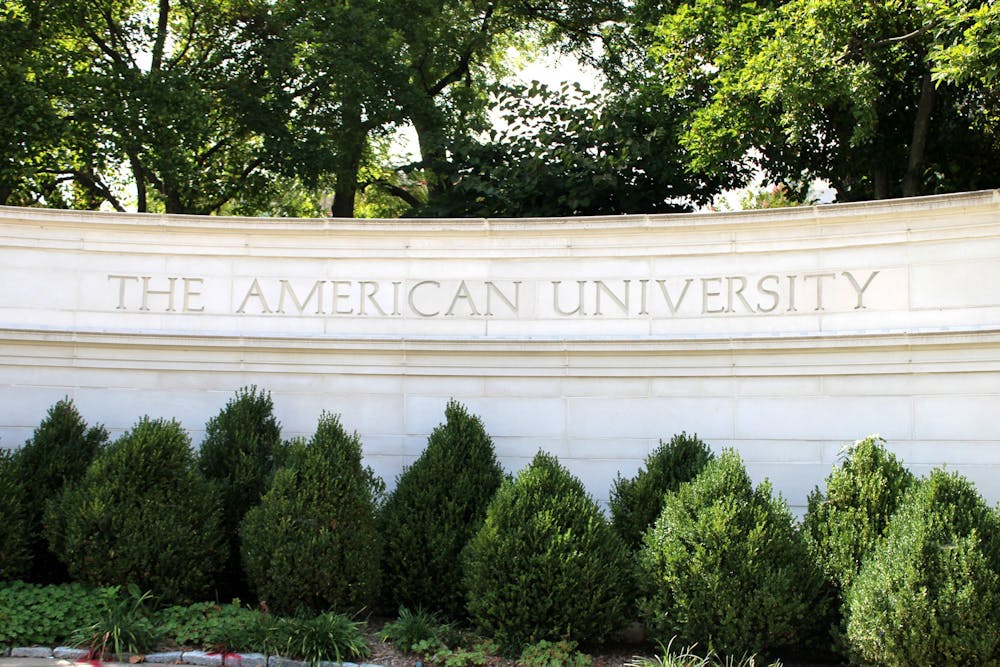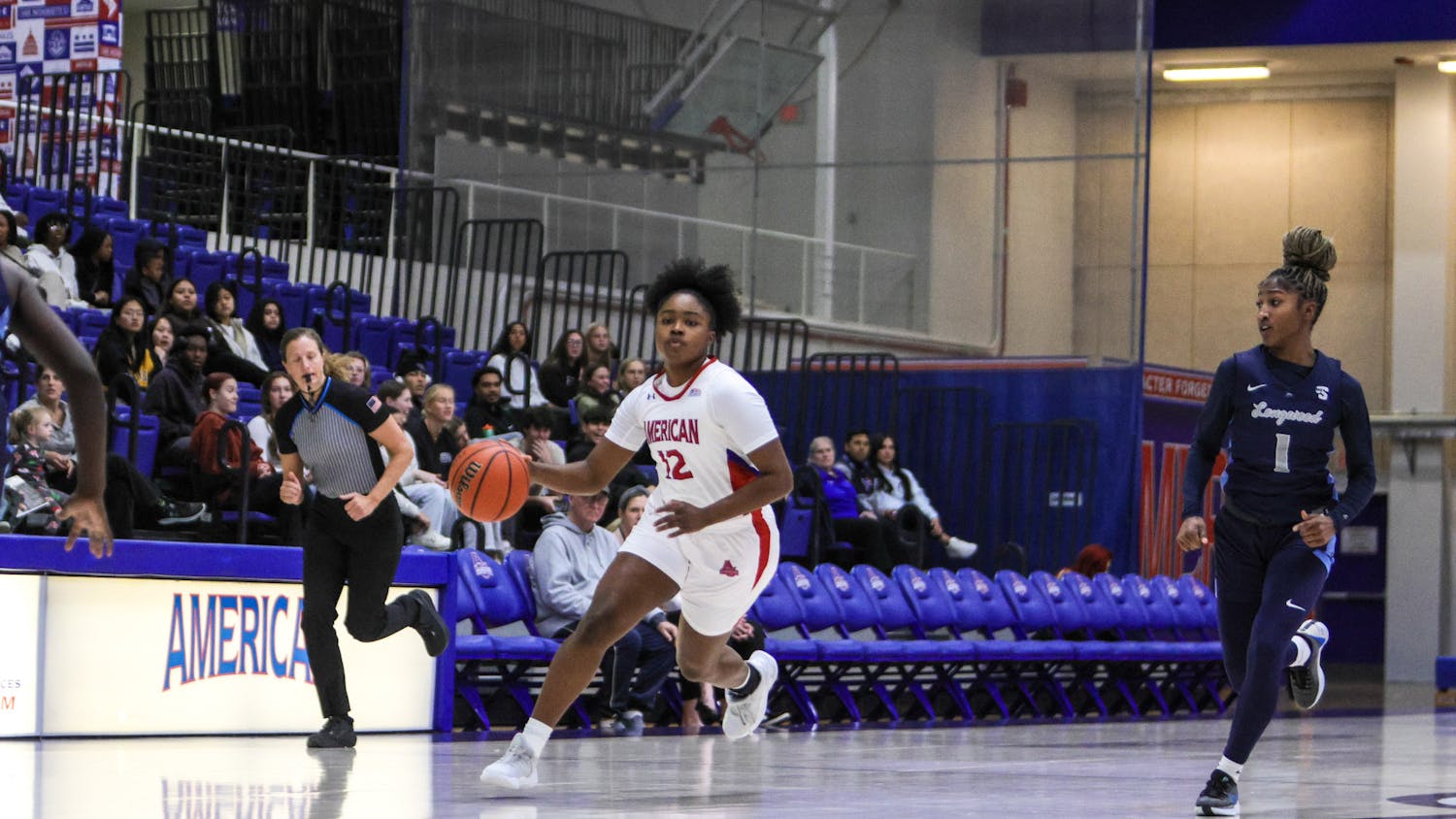American University is home to just under 2,000 international students from over 100 different countries. With varying backgrounds, there is no typical experience for international students. The Eagle sat down with a handful of students to find out more about their experiences finding community on campus.
Ranging from freshmen to seniors, these international students shared their love for AU and gave tips on how they find support on campus.
Chaitanya Venkateswaran, a senior in the School of International Service and College of Arts and Sciences, is an international student from New Delhi, India. She came to AU through a full-ride scholarship called the Emerging Global Leader Scholarship.
Venkateswaran started at AU during the peak of the COVID-19 pandemic and spent part of her freshman year at home. Despite this unique entrance into college, Venkateswaran said she felt that her transition was smooth.
“I’ve never had an issue where I’ve reached out to an office and not gotten a response within a couple of days on how we can move forward,” Venkateswaran said. “I’ve found mentors across schools in both my majors and for some other things I’m doing here. I think the faculty here at AU especially are incredibly open to it … If you reach out, they're often incredibly responsive.”
Finding support through faculty members brings comfort and stability to many international students at AU. Aaj Adhikari, a freshman in SIS from Kathmandu, Nepal, said she has found her professors to be a huge part of her college experience.
“Most of my first semester professors were actually immigrants themselves or really helpful and very understanding,” Adhikari said. “[One of my professors] would often check on me and ask where I was going for the holidays or if I was communicating with my family back home.”
Tongge “Susan” Sun, a senior in the School of Public Affairs from Shenyang, China, found students and faculty at AU to be more welcoming than where she went to high school in San Antonio, Texas.
“I feel more comfortable telling people I’m not from the States; I’m from China,” she said.
“I’m more used to people who tend to hold the same values or similar culture, so AU is definitely more of an eye-opening experience for me,” Sun added. “[At AU], you don’t have to be like everyone else because there’s always other people out there who accept you for who you are.”
Adriana Rivera, a senior in the Kogod School of Business from San José, Costa Rica, shared similar experiences. Compared to her prior educational experiences, Rivera said she specifically appreciated the diversity of the student body and the faculty because it allowed for more well-rounded conversations.
Before coming to AU, Rivera didn’t know much about the school, but said she knew she would like it. Yet, she never expected AU to exceed her expectations, “not only in terms of academic purposes but also [in terms of] community.”
One of the most important support systems for Rivera is AU Diplomats, an AU-led organization that brings together international students and U.S. Global Nomads — United States citizens that attend schools outside the country — to form a community through various events and mentorship programs. The program also spotlights current students’ experiences for prospective AU students. Rivera expressed that support systems such as these are what make AU special and welcoming for international students.
“AU has a strong support system to support international students in order to create community and to make you feel at home and to find people that can eventually help you in those four years since you don’t have your family close,” Rivera said. “I feel safe here — it’s now my second home.”
The International Student and Scholar Services office provides international students with support systems to help them succeed during their time at AU. The office has advisors specifically meant to help international students with their experience and they host events throughout the year to facilitate community.
One event is Global Café, which provides students with a study break to enjoy snacks and refreshments.
Rivera advises international students not to be afraid to reach out for help, saying that despite it being scary to not have someone here, “there are a lot of people that are going through the same.”
Still, Rivera and Venkateswaran believe that AU could provide more practical support during transition periods, whether it is the transition into college or post-graduation.
“The transition would be benefited by having avenues for more practical support,” Venkateswaran said. “For instance, I had to figure out on my own which banks I can open an account with here without having a social security number.”
International students come from varying backgrounds, which some students say makes it difficult to group this population together and expect them to always find commonalities
Venkateswaran believes that the University “having more insight into what this more fragmented group of students looks like … and what kind of different supports they need,” would greatly improve the international student experience.
Sun echoed this sentiment and shared her experiences struggling with the stereotypes of being an international student.
“When [people] see you as a foreigner, especially Asian and Chinese, they tend to associate you with stereotypes,” Sun said. “I felt like being labeled in a way that I had to act the opposite so that people can actually accept me as one of them. For example, if [people] think that Asians are really good at math, I feel like I have to purposefully fail all my math tests so that I can share something in common with them.”
Additionally, Venkateswaran and Adhikari said more funding and scholarships for international students are necessary.
“I think the hardest part for me was the financial aid part because there’s not a big focus for international students,” Adhikari said.
Venkateswaran said that the international admissions team have vied for an additional full-ride scholarship for international students, but have yet to be successful.
“The scholarship that I’m on, one student gets it every year … That’s the only full-ride opportunity that international students have the capacity to apply to,” Venkateswaran said.
However, students said the University has made improvements to better support international students during this transition period.
“They started providing us support for filing taxes as international students because … trying to navigate the process on your own is incredibly challenging because it’s a new system for you,” Venkateswaran said.
Beyond the logistics of moving to a school in the U.S., Sun and Venkateswaran both say they’ve enjoyed their time at AU.
“When I came to D.C., I started realizing that there are people who appreciate and celebrate diversity of humans in general, and I shouldn’t change myself just because I felt like I have to be part of a larger community in order to be accepted,” Sun said. “My AU experience as an international student has been pretty positive, not perfect, but positive compared to where I was before.”
Venkateswaran said she appreciates D.C.’s connection to the rest of the world and encourages students to take advantage of it.
“AU is the perfect place to start off that journey just because it is so inherently global, not just in terms of the diversity of the student population, but also because … D.C. is a global city,” Venkateswaran said. “Make use of all that you have at your fingertips because it is such a significant investment to choose to move away from all your support systems and come to a new place and if you’re here, you might as well make use of everything that you have available.”
As Venkateswaran’s time at AU comes to a close, she gives international students one piece of advice: “Do the internships, do the jobs, go to the festivals, go out. Try whatever you are able to, experience whatever you are able to because you will not regret it.”
This article was edited by Kathryn Squyres, Zoe Bell, Tyler Davis and Abigail Turner. Copy editing done by Luna Jinks and Isabelle Kravis.





